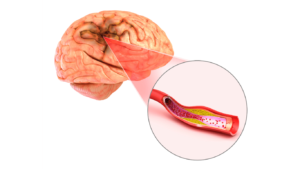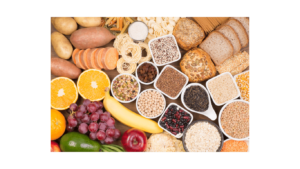In the realm of dietary choices, the surge in popularity of ultra-processed foods has become a topic of concern and curiosity alike. As we embark on this journey of understanding, let's look into the nuances of ultra-processed foods, deciphering their impact on our health, and exploring effective strategies to navigate this dietary landscape.
Unveiling the Essence of Ultra-Processed Foods
The term 'ultra-processed foods' finds its roots in the NOVA food classification system, meticulously crafted by researchers at the University of São Paulo, Brazil. This system categorizes foods into four distinct groups, shedding light on the extent of processing they undergo:
1. Unprocessed or Minimally Processed Foods
These treasures from nature include fruits, vegetables, milk, fish, pulses, eggs, nuts, and seeds. Untainted by additives, they stand close to their natural state.
2. Processed Ingredients
Elements like salt, sugar, and oils fall into this category, destined to complement other foods rather than standing alone on our plates.
3. Processed Foods
The amalgamation of groups one and two results in processed foods, which can be recreated by home cooks. Think jam, pickles, tinned fruits, and homemade bread.
4. Ultra-Processed Foods
At the zenith of the classification, we encounter ultra-processed foods, boasting five or more ingredients. These culinary culprits harbor additives and components seldom found in our kitchens, ranging from preservatives to emulsifiers, sweeteners, and artificial colors and flavors. With an extended shelf life, they allure us with convenience, but at what cost?
Navigating the Landscape of Culinary Temptations
Common Culprits of Ultra-Processed Foods

To shield ourselves from the allure of these dietary villains, let's identify their common guises:
- Ice cream
- Ham
- Sausages
- Crisps
- Mass-produced bread
- Breakfast cereals
- Biscuits
- Carbonated drinks
- Fruit-flavored yogurts
- Instant soups
- Certain alcoholic beverages like whisky, gin, and rum
Cereals and Bread: The Deceptive Duo

Contrary to popular belief, everyday staples such as breakfast cereals and mass-produced bread stealthily fall under the banner of ultra-processed foods. Infused with emulsifiers, sweeteners, and artificial additives during production, these seemingly benign items join the ranks of their more conspicuous counterparts.
Unraveling the Impact: Why are Ultra-Processed Foods a Health Menace?
The Nutritional Predicament
Ultra-processed foods often conceal elevated levels of saturated fat, salt, and sugar within their enticing exteriors. Consuming them leaves scant room in our diets for more wholesome alternatives, potentially paving the way for nutritional deficiencies.
Processing and Its Puzzles
Studies suggest that the processing of food can wield influence over how our bodies metabolize it. For instance, the absorption of fats from nuts differs when consumed whole versus ground down. Furthermore, the intricate dance between ultra-processed diets and gut health remains an area of intense scrutiny.
The Quandary of Additives
The additives nestled within these foods raise eyebrows. Could they be the architects of adverse health effects? As we embark on this journey of exploration, the answer eludes us, shrouded in the need for further research.
Crafting a Balanced Approach: Should Ultra-Processed Foods Be Banished?
The dilemma of banishment versus moderation lingers, and here's the verdict:
Scientific Advisory Committee on Nutrition's Caution
The Scientific Advisory Committee on Nutrition (SACN) urges caution, acknowledging the limitations in current research. While the evidence connecting ultra-processed foods to cardiovascular risks burgeons, the need for comprehensive dietary recommendations persists.
A Symphony of Balance
Rather than an outright expulsion, advocate for a harmonious interplay in your diet. Balance the allure of ultra-processed temptations with the wholesomeness of minimally processed foods. Let fruits, vegetables, and water dance on your plate alongside their processed counterparts.
Strategies for Navigating the Ultra-Processed Terrain
Discerning Choices in the Aisles
Arm yourself with knowledge; read labels like a seasoned detective. Identify and curtail foods high in sugar, salt, or saturated fat. The power to transform your diet lies within the discerning choices you make in the supermarket aisles.
Savvy Swaps for a Healthier Tomorrow
Embark on a journey of dietary transformation with savvy swaps:
- Opt for plain yogurt and embellish it with your choice of fresh, frozen, or dried fruits.
- Prepare your favorite sauces and meals at home, freezing extra portions for days when time is of the essence.
- Exchange low-fiber breakfast cereals for a nutrient-packed porridge adorned with fruits and nuts.
- Replace store-bought fruit pies or cakes with the crisp allure of fresh, baked, or stewed fruits.
- Bid adieu to biscuits during your afternoon respite and welcome the nourishing embrace of nuts.
The Echoes of Research: Linking Ultra-Processed Foods to Heart Health
Dive into the waves of research that echo the risks associated with indulging in ultra-processed diets:
The Australian Revelation
A study tracking 10,000 Australian women for 15 years revealed a 39% higher likelihood of high blood pressure in those with the highest intake of ultra-processed foods.
A Global Gaze
A broader analysis spanning 10 studies and involving over 325,000 individuals unveiled a 24% increased risk of serious heart and circulatory events for those with the highest ultra-processed food intake.
The Spanish Prelude
A study following 19,899 university graduates in Spain linked higher ultra-processed food intake to a 62% higher risk of early death after 10.4 years.
A Call for Caution and Contemplation
Beyond Association to Causation
As we interpret these findings, it's crucial to discern that observational studies can only hint at associations, not causation. The broad classification of ultra-processed foods adds layers of complexity, leaving us to ponder the myriad factors at play.
Embracing the Mediterranean Tapestry
BHF Senior Dietitian Victoria Taylor advocates a holistic approach, urging us to adopt a Mediterranean-style diet. Rich in minimally or unprocessed foods like fruits, vegetables, fish, nuts, seeds, beans, lentils, and whole grains, this tapestry of nutrition intertwines with regular exercise and a tobacco-free lifestyle, reducing the risk of heart and circulatory diseases.
In conclusion, the journey through the labyrinth of ultra-processed foods demands careful consideration, discernment in choices, and an unwavering commitment to the symphony of balance in our diets. As we navigate this culinary terrain, let the echoes of research guide us towards informed decisions and a healthier tomorrow.






